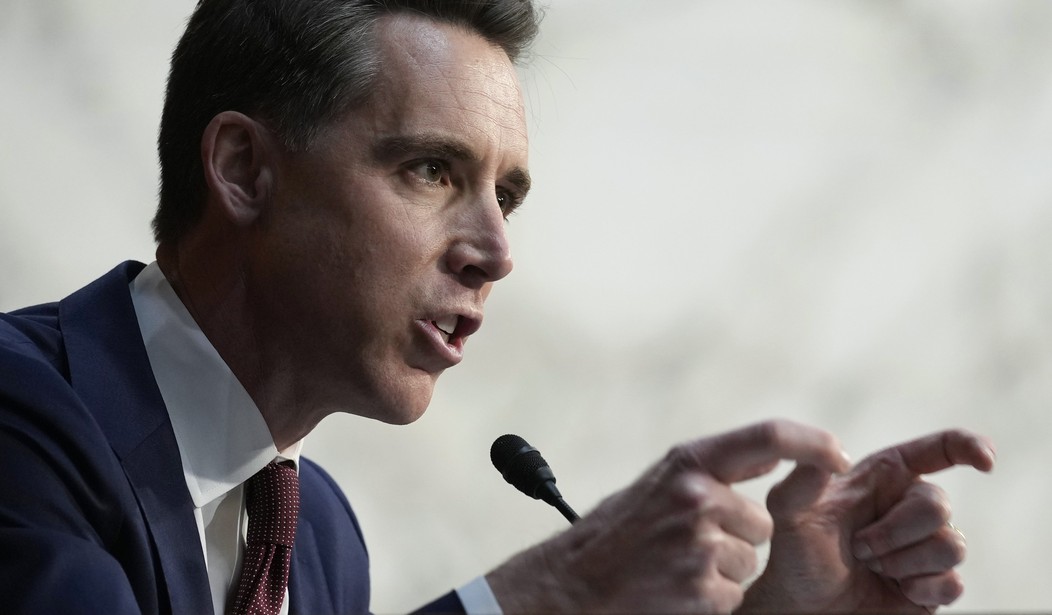Tuesday marked the first time Boeing CEO Dave Calhoun appeared before lawmakers since a door plug blew off a 737 Max 9 plane mid-air in January—a high profile incident that underscored the quality and safety concerns plaguing the company. But it wasn’t just the senators on the Homeland Security & Governmental Affairs Permanent Subcommittee on Investigations that Calhoun had to face. Behind him sat families of victims of two 737 Max crashes in Indonesia and Ethiopia holding up photos of their loved ones killed in the crashes, attributed in part to faulty avionics software.
“I would like to apologize, on behalf of all of our Boeing associates spread throughout the world, past and present, for your losses,” Calhoun said to the families before his opening remarks. “And I apologize for the grief that we have caused.”
Calhoun was there to testify about allegations brought forth from whistleblowers who shared concerns about safety and quality issues at the company and were then retaliated against by their employers. Ahead of the hearing, the committee released a report detailing the problems.
“Documents and accounts provided by whistleblowers familiar with Boeing’s production at facilities in Washington state and Charleston, South Carolina, paint a troubling picture of a company that prioritizes speed of manufacturing and cutting costs over ensuring the quality and safety of aircraft,” the report notes. “These misplaced priorities appear to contribute to a safety culture that insufficiently values and addresses the root causes of employee concerns and insufficiently deters retaliation against employees that speak up.”
A new whistleblower, Sam Mohawk, told Senate investigators in May that he witnessed “systematic disregard” for documentation of rejected or out-of-compliance parts at Boeing’s Renton, Wash., aircraft manufacturing plant, the staff memorandum said.
Mohawk alleges that in June 2023, Boeing, alerted to an imminent inspection by the Federal Aviation Administration, moved parts that were being stored outside the plant “to intentionally hide improperly stored parts from the FAA,” according to the report. Mohawk, a Boeing quality assurance investigator, feared that nonconforming parts were being installed in planes, the report said.
Mohawk also alleges the company retaliated against him when he raised concerns. Boeing said it was reviewing the new allegations contained in the committee staff report. It said it encourages employees to report all concerns. But the committee said Mohawk’s account is part of a pattern at Boeing, which it said prioritizes speed and cost-cutting. […]
The latest Senate report detailed a program that Boeing initiated only months after the Lion Air crash in Indonesia in October 2018. The company significantly reduced the number of quality inspectors it employed, part of a years-long effort by the company, the report said.
The subcommittee’s report noted that the FAA in 2021 found that Boeing’s actions violated regulations, including by putting unqualified manufacturing workers in charge of inspecting their own work. The agency Tuesday said the company began correcting the inspection deficiencies and certified that Boeing resolved them last year. (WaPo)
Sen. Richard Blumenthal, chairman of the subcommittee, said it appeared Boeing was making steps in the right direction following the 2018 and 2019 Max crashes until the January incident with the Alaska Airlines flight.
Recommended
“This past January, the facade quite literally blew off the hollow shell that had been Boeing’s promises to the world,” Blumenthal said. “And once that chasm was exposed, we learned that there was virtually no bottom to the void that lay below.”
But some of the sharpest questioning came from Sen. Josh Hawley (R-MO), who grilled the executive on his nearly $33 million salary despite the company’s problems. Far-left outlet The New Republic even conceded his line of questioning was spot-on.
“You’re not focused on safety, you’re not focused on quality, you’re not focused on transparency, all of this is on the record,” Hawley said. “But actually, you’re focused on exactly what you were hired to do, which is that you’re cutting corners, you are eliminating safety procedures, you are sticking it to your employees, you are cutting back jobs because you’re trying to squeeze every piece of profit out of this company.”
“You’re strip-mining Boeing. It was one of the greatest American companies ever. It has employed thousands of people in my state, and you are strip-mining it for profit and shareholder value, and you’re being rewarded for it,” Hawley added.
“Why haven’t you resigned?” he wondered.
Calhoun, who is planning to step down by the end of the year, disagreed with Hawley’s characterization of him and his work and said he’s “proud” of the company's safety record and "every action we've taken."
"Wow, wow," Hawley responded. "There's some news for you."
Exchange between Sen. Josh Hawley (R-MO) and Boeing CEO David Calhoun on compensation and transparency.
— CSPAN (@cspan) June 18, 2024
Hawley: "What is it that you get paid, currently?"
Calhoun: "It's well disclosed...it's a big number."
Hawley: "It's $32.8 million this year...that's a 45% increase..." pic.twitter.com/LM21Th5HCs
Boeing CEO just told me he’s proud of his safety record. Has he noticed from his executive suite that his planes are falling out of the sky? pic.twitter.com/L1O1WEUBpm
— Josh Hawley (@HawleyMO) June 18, 2024
Boeing’s planes are falling out of the sky in pieces - but the CEO makes $33 million. A year. What exactly is he getting paid to do? The answer: strip mine Boeing for corporate profit pic.twitter.com/i16GOPNm6L
— Josh Hawley (@HawleyMO) June 18, 2024























